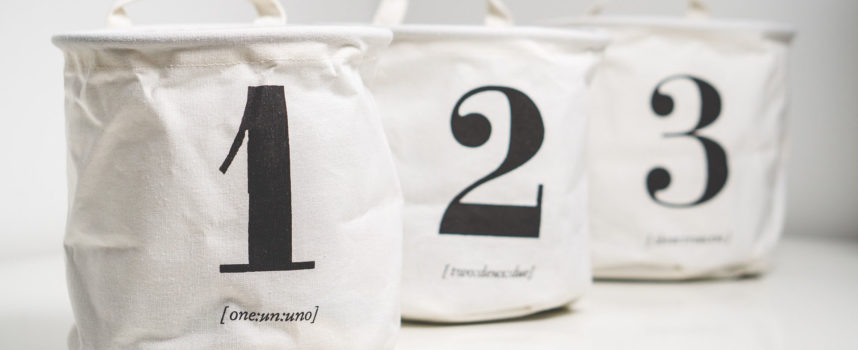GRAMMAR in practice
Temat: dom Truths and myths about sharing a room with your sister Veni, vidi, vici. Your special reporter has just spied out the bedroom shared by two sisters and thanks to this act of his great bravery some of the myths referring to this subject might be busted: 1) Living with your sister will be a great fun. Well, if you find endless telephone converstations, piles of dirty clothes everywhere
Jest to istotne zagadnienie, dlatego że – ze względu na brak deklinacji, a raczej jej szczątkową postać – miejsce danego słowa bardzo często określa także jego funkcję w zdaniu. W związku z tym orzeczenie (verb) powinno stać jak najbliżej podmiotu (subject), np.: I am going to cinema. She has been studying French. (Zauważ, że orzeczenie może się czasem składać z więcej niż jednego wyrazu) Mogą je oddzielać jedynie okoliczniki czasu
Przedimek zerowy Jeżeli mówisz o czymś po raz pierwszy lub ogólnikowo i jest to więcej niż jedna rzecz (liczba mnoga), nie używasz rodzajnika w ogóle, np. Boo is a dog. (Boo jest psem), Boo and Chita are dogs. (Boo i Chita są psami). Jack is a nice person. (Jack jest miłą osobą). His parents are nice people. (Jego rodzice są miłymi ludźmi). Przedimek określony The używamy, jeżeli mówimy o: czymś, o czym już wcześniej wspomnieliśmy (mówimy
W języku angielskim, podobnie jak w polskim, rzeczowniki możemy podzielić na dwie grupy: policzalne, opisujące to co można policzyć na sztuki, nie używając żadnych dodatkowych jednostek miary (centymetrów, litrów, szklanek, itp.). Wszystkie pozostałe, a więc rzeczowniki abstrakcyjne (fraternity – braterstwo, love – miłość), opisujące materiały (wood – drewno, glass – szkło), ciecze (milk – mleko, wine – wino) i produkty sypkie (np. sugar – cukier, rice – ryż, coffee –
Ania, 19 When the weekend starts I always get dressed pretty early. I quickly get dressed and go riding! On Saturdays I try to spend the whole day in the stable. I start with cleaning up my favourite horse, Lucky. Then I put the saddle on it, get on and start riding. Even when the hours are passing by I do not get off and carry on as long as I notice that Lucky is tired. Then
W języku angielskim, aby powiedzieć, że jakaś rzecz (lub osoba) należy do kogoś, używasz zaimka dzierżawczego. my – moje your – twoje his – jego her – jej its – tego our – nasze your – wasze their – ich Przykłady: This is MY computer. (To jest MÓJ komputer). YOUR cat is beautiful. (TWÓJ kot jest piękny). OUR house is bigger but THEIR house is more beautiful. (NASZ dom jest
Przeczytaj dialog Mark: Hi, how are you? Do you want to go to the cinema today? There’s a new James Bond film on. Jim: Really? But you don’t like this kind of movies, do you? I remember, one time you were really angry you spent money on nothing. It was a horibble movie anyway, wasn’t it? Mark: Yes, that’s true. You like such movies, don’t you? Jim: Sure. But let’s check if there’s
MATURA REVISION Dodge the grammar traps Małgorzata, she was working as an archaeologist near Waterford, Ireland: My job was to sift for remains on one of the most precisely located site in Ireland. It was very responsible as we expected to reveal the kind of information not accessible to survey method, e.g. three-dimensional structure of objects. My English was to be perfect. Actually, applying for this job I was sure
Wild goose chase My wheels in the bicycle stopped working. Usual thing, it probably happened to each of you one day or another. I’m not such a person who likes waiting for things to be done so I started to look for a wheelwright. I know there was such a job – the men who used to repair wheels or even make them themselves. I found the workshop of one
Temat: państwo i społeczeństwo What do you know about national symbols? 1. �The national flag of the United Kingdom of Great Britain and Northern Ireland is called… a) Union Jack b) Jack-O-Lantern c) Jack of all trades 2. �Red, white and blue are colours appearing on the flag of… a) France b) Great Britain c) The United States of America d) All of these 3. Which two flags differ only
Temat: kultura Rafal, 19, Warsaw: I must admit I’ve been learning English for about 10 years now and for all this time I’ve been searching for more and more efficient methods. I’ve tried a lot: private tutoring – it was quite OK, but I wanted to kill two birds with one stone and I decided to learn with my girlfriend. Of course it didn’t work out – we were laughing,
Temat: culture Zuza, Kielce: Woody Allen, he is the matchless director for me! Watching his films you will laugh your head off, it is inevitable! They are both satirical and wise and it’s not so often to see such a mixture nowadays. I liked “Mighty Afrodite” most but I appreciate his early movies, too. For example the story of Annie Hall directed in 70s is still as inspiring as his
Temat: szkoła Kiedy używać zaimków względnych (relative clauses)? English loan words in Polish Have you ever thought where the word “horde” in English comes from? Yes, you are right. It is Polish word “horda” that means the disorganized crowd of people – only with slighty changed spelling. Nevertheless, let`s not have illusions about importance of Polish loan words in English – they are just a tiny fraction of the linguistic
Temat: dom Burglaries in the holiday resort A series of burglaries have been discovered recently in the holiday resort Astaklesis, Scotland. Especially one of them was surprising for the policemen investigating the case: ”It was a house rented by students throughout academic year”, reported one of them (wanted to stay anonymous), ”during holiday it was vacant. The burglars must have known about it because they did not smash anything to
Temat: zdrowie Kiedy zima w pełni, coraz więcej osób dookoła prycha i kicha. Niestety, przegrzane i wysuszone mieszkania, mało ruchu i świeżego powietrza, a do tego niska odporność organizmu i… infekcja gotowa. Na szczęście lektura dzisiejszego artykułu pomoże wszystkim zakatarzonym podjąć odpowiednie kroki, by za tydzień znowu nie biegać z chusteczkami przy nosie. A do tego odsłoni tajniki kolejnych czasowników modalnych (I część poznałeś w Cogito 20/2007). Na zdrowie!
Temat: nauka i technika Nauka i technika podlegają tak szybkim zmianom cywilizacyjnym, że coraz więcej ludzi ma problemy z obsługą coraz to bardziej skomplikowanych urządzeń… służących, skądinąd, do całkiem prostych czynności! Na szczęście mowa zależna (Reported speech/Indirect speech) nie jest tak skomplikowana! The good old microwaves Nowadays, when more and more kitchen appliances resemble rather versatile spaceships than common everyday objects, we decided to ask some people about their
Temat: żywienie Czasowniki modalne Diet myths Although science has developed extensively in recent years many people still believe in dietary myths. It is the highest time to debunk at least three of them! 1. �Myth: Milk treated with Ultra High Temperature (UHT) contains little nutrients and many preservatives or even scary hormones. You must not use the milk if you want to stay well. Truth: The milk does not contain
Temat: zakupy i usługi Should the supermarkets be open on Sundays? To pytanie potrafi skłócić najwierniejszych przyjaciół, bo – ile osób, tyle argumentów. Dzisiaj posłuchamy maturzystów, którzy mają na tę sprawę własny pogląd. A przy okazji na półkach supermarketu poszukamy wyjątkowej promocji – angielskiej strony biernej! Anna, against: I am Catholic and for me Sunday is the day set apart as the holy one. I am treating my principles seriously
Temat: sport O sporcie oraz użyciu form: infinitive i gerund What is your favourite sport? Anne, Switzerland Actually, I am not very fit. I think I am a typical couch potato (laugh). I love watching sports on TV: ice-skating, swimming, parkour. In parkour the participant`s task is to pass the obstacles on his way. The winner is not just the person who is the first but also the one who
Odkryj, jakim typem człowieka jesteś i dowiedz się co nieco o… okresach warunkowych! Niezbędna wiedza, aby dobrze zdać maturę! 1) �If you could spend a weekend of your dreams, what would you do? a) �I would learn English – never too much education. ¤ b) �I would sleep all day, of course! Y c) �I would go to a concert or to a veeery big party! © d) Surely, I`d meet with my friends. Q



